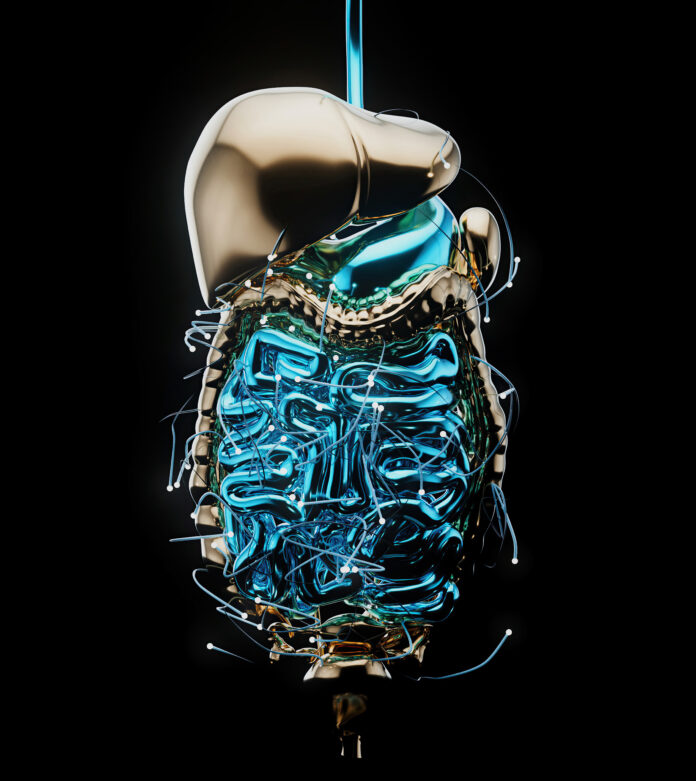It may be a wonderful thing to know that your body has a large microscopic world, known as your Gut Microbiome. It consists of trillions of microorganisms that affect the gut environment in several ways. Studies also claim that these microscopic living organisms forming your gut microbiome can influence many aspects of your overall health, both within and outside of your digestive system.
Overview
A biome refers to a separate independent system of a specific environment along with its inhabitants. Your intestines also have a miniature biome, consisting of trillions of microscopic organisms. Thousands of species of bacteria, parasites, viruses and fungi are found in your gut microbiome.
Studies showed that your gut microbiome is unique to you. You inherited your first gut microbes from your mother during breastfeeding and vaginal delivery while afterwards you got them from your environment and diet. Some environmental exposures may harm your gut microbiome.
Significance of Your Gut Microbiome
Microorganisms Living in your gut usually make a symbiotic relationship with you, as parasites. They consider you as a host. This relationship is symbiotic and gives benefit to both partners. You provide them with food and shelter while they perform special functions in your body. These microbes also keep check on potentially harmful microorganisms invading in your body.
In addition, your gut microbiome is like a diverse native garden that provides you with medicines and nutritious foods. If your gut is healthy and free from impurities, you live a healthy life. But in case of polluted or impure environment, your garden and its inhabitants can be upset leading to a great setback for your gut ecosystem.
Function of Your Gut Microbiome
Many of your body systems are directly interacted with your gut microbiome. Gut ecosystems also support your several body functions. It takes care of your body systems and plays a key role in protecting your internal environment against foreign pathogenic microbes. Many healthcare providers call them as a whole organ because they work with your other organs in a coordination. Their interactions with other body systems or organs are still under study and some are completely understood by the bio-researchers. The well-known interactions of mice your microbiome with other body systems include:
Digestive System
Your gut microbiota contain such bacteria that help break down the complex carbohydrates and fibers that cannot break down on your own. This breakdown also produces some short-chain fatty acids as by products, which are important nutrients for your body health. These microbes also help provide the synthetic enzymes necessary for the production of certain vitamins, such as vitamin K, B1, B 9, and B12. You may consider them as small nutrients but the deficiency of such micro-nutrients can cause severe health issues.
In addition, the short-chain fatty acids produced by your gut bacteria help feeding your gut cells present in gut lining and keep your gut environment free of impurities and pathogens. These bacteria also help in bile metabolism occurring in your intestines. When your liver transfers its bile to your intestines to digest fats, your gut bacteria and their enzymes are in the bile to aid the breakdown procedure so that the bile products can be reabsorbed by your liver for recycling. This enterohepatic circulation is also beneficial for your overall health.
If your enterohepatic circulation stops working, your body wouldn’t recycle bile acids and your liver cannot produce more bile for fat digestion. This malfunctioning of the liver can lead to accumulation of cholesterol in your blood and blood vessels, becoming a leading cause of heart attack.
Immune System
Your immune system gets help from your beneficial microbes found in your gut. Your gut contains a large percentage of your immune system cells. Near,y 85% of your immune cells are formed in your gut. These cells fight against the pathogenic microbes and pass them out of your body on a daily basis. The gut microbes also fight against some unhelpful nutrients and keep them from taking up a large area of intestines.
In addition, diminishing some useful microbes from your microbiota can cause bacterial infections that can harm your gut health.
Moreover, short-chain fatty acids, produced by your gut microbes also help your immune system.they work to benefit your gut barrier, keep bacterial toxins and pathogens away from your bloodstream. They also play an anti-inflammatory role to maintain your gut health.
No doubt, inflammation is the defective form of your immune system but when it becomes hyper-active, it can take the form of a malfunction. Chronic inflammation is known as the characteristic of autoimmune disorders and can be a leading cause of many other diseases, like cancer and high blood pressure.
Nervous System
Your nervous system also has a close interaction with your gut microbes. They are related to each other by the gut-brain-axis. This is the network, consisting of neurons, neurotransmitters and nerves running through your gastrointestinal tract. Some gut bacteria suddenly produce serotonin like neurotransmitters and send them towards your brain. These bacterial signals also can affect your nervous system.
Moreover, studies show that bacterial pathogens can harm your nerves but short-chain fatty acids have positive effects on your nervous system. The research is not enough to prove how your gut microbiome is involved in your mood disorders, nerve pain or neurological disorders. Researchers are still striving to get more data about this.
Endocrine System
Many endocrine cells are present in your gut lining. These cells are affected by your gut microbes. These are enteroendocrine cells which form the largest part of your endocrine system. They also produce hormones to regulate your different aspects of metabolic activities, such as satiety, appetite, cholesterol levels and blood sugar levels.
More research is needed to explore how your gut microbiome may be involved in any metabolic syndrome including type 2 diabetes, obesity and insulin resistance. Some studies claim that these sears have a relationship with certain gut microbes. However, what is the reality, is not known well.
Where is Your Gut Biome Located?
Your gastrointestinal tract refers to your gut. You can consider it as your intestine but it also consists of your esophagus, stomach and liver along with small and large intestines. Some gut bacteria live in your stomach and a large number reside in your small and large intestine. They used to float around, inside and outside the lining and inner walls of intestine but some of them also like to remain attached with the mucous lining.
Bacteria living in their last part of your large intestine (colon) are totally different from all other types of bacteria present in your hut. These bacteria are anaerobic and need low winery to survive in that environment. Fast moving food particles, higher levels of oxygen and strong digestive liquids or enzymes make it harder for them to colonize. These anaerobic gut bacteria are very important for your colon functioning because they help break down the indigestible fibers and provide certain essential nutrients that couldn’t get anywhere else. These microbes can be beneficial only if they work in the natural microbiome.
Staying beyond the colon can cause harm to them. When these bacteria reach the small intestine, they invade your digestive tract and cause digestive issues. They also attack your colon wall and try to escape through a wound in your colon wall. This can lead to a severe infection in your digestive tract.
Health Conditions and Disorders related to Your Gut Microbiome
Malfunction in your gut microbiome is associated with several health conditions, including:
Small Intestinal Bacterial Overgrowth (SIBO): This is known as dysbiosis in your small intestine. This is characterized as overgrowth of bacteria in your intestine, using a large amount of resources and producing useless byproducts. Slow gut motility causes migration of ;large number of bacteria from your large intestine and settling them in the small intestine. Their abrupt migration causes health issues because they don’t belong to this place.
Atherosclerosis: certain gut bacteria cause an increased risk in cardiovascular diseases by producing trimethylamine N-oxide as a by-product. This chemical makes clots in your arteries contributing to their blocking and hardening, called atherosclerosis. Healthcare providers first check this condition, when determining your risks of coronary artery disease.
Infections: Disease-causing microorganisms cause chronic or temporary infections in your gastrointestinal tract, including colitis, inflammation, toxic damage to your gut lining, and diarrhea. Sometimes the microbes also invade your gut boundaries and try to escape into your bloodstream. Dysbiosis deserts your gut defense system against these pathogens.
Inflammatory Bowel Disease (IBD): This is an autoimmune disorder, consisting of several diseases like Crohn’s disease, Ulcerative colitis, or Microscopic colitis. IBD can be diagnosed by gut dysbiosis criteria. Studies show that these two conditions are related somehow but which one comes first is not known.
Other conditions related to gut microbiome are:
- Autism.
- Pancreatic cancer.
- Obesity.
- Rheumatoid arthritis.
- Allergies.
- Asthma.
- Anxiety.
- Chronic fatigue syndrome.
- Colon cancer.
- Diabetes.
- Depression.
- Liver cancer.
- Fatty liver disease.
- Irritable bowel syndrome.
- Neurodegenerative diseases.
- Multiple sclerosis.
Common signs of a Problem in Your Gut Microbiome
Following symptoms typically indicate the problems in your microbiota:
- Diarrhea.
- Constipation.
- Bloated stomach.
- Lower abdominal pain.
- Gas and gas pain.
How is Gut Dysbiosis Tested?
Gut dysbiosis cannot be checked directly. Healthcare providers check for specific conditions, like bacterial overgrowth and infections. They examine your stool, breath and blood through different tests to find out the problem in your gut microbiome. They use breath test specifically to check the presence of different gases in your breath that may be the byproducts of certain bacteria in your gut.
Treatments for Gut Microbiome Conditions
Your gut microbiome is exposed to different conditions which can be treated through some treatment options, including:
Fecal Transplant: When some of your gut microbiome is severely diminished due to any reason, fecal transplantation can restore it. This is the transfer of sampling of gut microbiota from a healthy gut to a disease one. However, this option is allowed only for those who are suffering from C.diff infections, which are resistant to antibiotics.
Elimination Diet: This is the treatment plan in which a short term diet is designed for the patient to isolate the foods causing gastrointestinal symptoms in your gut. This diet includes the foods specifically liked by your gut microbiome. Too much eating of the food leads to production of too many byproducts, causing intestinal gas, diarrhea, or vomiting. These symptoms can be controlled by starving them.
Antibiotics: Overgrowth of certain gut bacteria or infections in gastrointestinal tract can be treated with a course of antibiotics. Taking antibiotics assists the gut microbiome to get healthy and recover. If your gut needs more help for recovery, your healthcare provider may prescribe some prebiotics and probiotics with certain supplements to restore your microbiome.
How to Take Care of Your Gut Microbiome?
A healthy lifestyle and balanced diet can help you maintain our gut health. Here are some ways to encourage your gut microbiome:
Try Prebiotics and Probiotics: You can take supplements containing specific prebiotics and probiotics because they are actually helpful microbes that can be ingested in the form of supplements or through natural food. These microbes reside in your colon and help in complete digestion of food. Prebiotics are the dietary fibers that are required for the growth of helpful bacteria in your gut. You can pick the best probiotic or prebiotics for you, with the consultation of your dietitian or nutritionist.
Improve Gut Health by Natural Means: A plant rich diet is the most feasible and natural way to improve your gut health. Try to add a variety of whole foods, such as fruits, vegetables and whole grains in your diet. These foods are rich in dietary fibers which are necessary fir the health of your gut microbiome. Micro-nutrients found in these foods help reduce inflammation in your gut which affects your inner environment. Avoid to eat processed food as they work oppositely.
Careful Use of Antibiotics: It is a matter of great care when you actually need antibiotics and when you do not. Overuse or misuse of antibiotics can lead to general resistance against antibiotics in your body. This resistance kills your healthy and useful bacteria along with bad ones. This over killing of bacteria disrupts the balance in your gut microbiome, leading the harmful bacteria coming back in stringer form.
Conclusion
In the recent era, the medical community is highly concerned about the gut microbiome and the conditions related to it. This means gut microbiome is the hot topic of the day. Scientific evidence shows that the health of your gut microbiome is directly linked with the health of other systems and organs of your body. This cleats that a healthy gut microbiota can ensure your overall health specially digestive and nervous health. Therefore, the researchers and medical professionals are trying to understand and find the treatment options for a wide range of conditions linked with your gut health.
Healthcare providers suggest that gut health should be focused by all because the more you learn the more you realize how much it is for your healthy survival. They say a healthy whole food with some physical activity and good night sleep can help you reach your goal.







